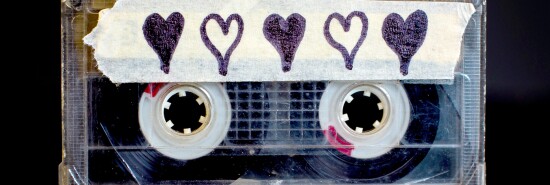
A playlist is no match for a mixtape as a romantic gesture
Rob Long
When I was a teenager — and it’s none of your business when, exactly, that was — there was one unmistakable way to let someone know that you liked them. And when I say “liked” I mean liked liked. (That’s how we put it. We would say: “Do you like her? I mean, do you like her like her?” Or: “I, like, really like him. Like, like him like him.”) The way you communicated this, especially if you were a boy, was to make the object of your affection a mixtape.
If you’re over 35, you can safely skip the next two paragraphs. You already know what a mixtape is.
THE MIXED MESSAGES OF BIDENOMICS
A mixtape was a homemade collection of songs from different artists, and sometimes even different eras, painstakingly compiled and arranged and recorded onto a blank cassette tape. The maker would create an artistic-looking label and carefully print out a song list for each side, and if there was room add editorial commentary such as, “Live version, much better than studio,” or “Definitive cover,” or “Got me through some bad stuff.”
Mixtapes were mostly compiled by teenage boys for girls because boys often find it easier to say deeply felt things about music and bands with an emotional intensity they cannot use to talk to girls. And making a mixtape was hard work. You had to connect your turntable to your cassette recorder — sometimes these were all part of the same unit — and rerecord each song in whatever order seemed the most fitting. You had to time the songs out so that each side of the cassette seemed full — you didn’t want, say, three minutes of silence at the end of a side. Most importantly, you had to make sure to surround the one song that really had a message — the love ballad — with enough hard rocking headbangers so that whoever received the tape would spend a lifetime wondering if the tape was a philosophical statement (Supertramp’s “The Logical Song”), an elaborate brushoff (The English Beat’s “End of the Party”), or a declaration of love (Elvis Costello’s “My Aim is True”). When you’re a teenage boy who, like, like likes someone, the most important thing is deniability.
I was reminded of all of this last week, when the teenage daughter of a friend of mine returned home from summer camp talking about a boy she met during leathercrafts. He was, apparently, really great and smart and everything and she, like, liked him liked him, and the way she knew he, like, like liked her back was because he shared a Spotify playlist with her titled “Summer Bops 2023.”
In retrospect, I probably should have kept my mouth shut. She’s 14, and there’s plenty of time for her to learn that teenage boys will always take the lazy way out if they can. But for some reason I felt compelled to tell her that simply hitting the “Share” option on a dumb-sounding playlist — “Bops?” I asked. “Seriously? This kid sounds lame.” — was such a tiny amount of effort that you really couldn’t draw any safe conclusions from it. He could have shared that playlist with anyone, with everyone, with the entire Spotify subscriber base. This kid was a polyamorous playlist sharer at best, a music player playa at worst.
Did he include any notes, I asked? Did he go through each track and explain why it’s there? Did you at any time have to pretend to be interested in his pompous analysis of a song? And if not, how much could he really, like, like you? Liking someone takes zero effort, I explained. But if you really like like someone, you put the time in.
Her response was to shake her head sadly at me and tell me in the withering tone of voice that all 14-year-old girls have mastered, “You don’t get it.” She walked away furious at my ignorance and full of pity for my decrepitude.
“A playlist is not a mixtape,” I called after her, but I realize that’s something that she needs to discover on her own.
CLICK HERE TO READ MORE FROM THE WASHINGTON EXAMINER
Rob Long is a television writer and producer, including as a screenwriter and executive producer on Cheers, and he is the co-founder of Ricochet.com.
